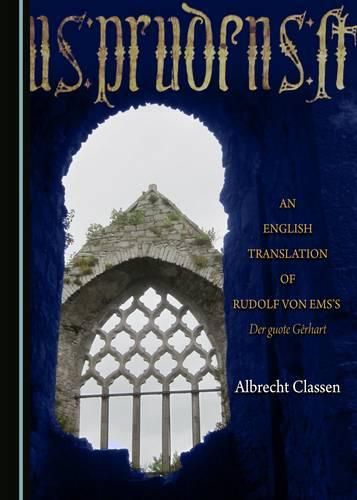Readings Newsletter
Become a Readings Member to make your shopping experience even easier.
Sign in or sign up for free!
You’re not far away from qualifying for FREE standard shipping within Australia
You’ve qualified for FREE standard shipping within Australia
The cart is loading…






To expand our understanding of medieval literature in its wider context, there is a desperate need for more translations, since not every text in the Middle Ages was written in Latin, English, or French. Rudolf von Ems’s Der guote Gerhart (ca. 1220) represents a major contribution to thirteenth-century German romance literature. The present English translation will allow those without knowledge of Middle High German to read and enjoy this significant composition and gain remarkable insights into a literary discourse that was to transform the late medieval canon. Rudolf’s work deserves particular attention because it includes remarkable examples of medieval multilingualism, tolerance, and multiculturality. The poet developed new aesthetic and ethical values, and presented an innovative relationship between a humble yet intelligent and compassionate individual and God by introducing, as his protagonist, a Cologne merchant, who supersedes even the Emperor Otto in his religious devotion, humbleness, and goodness. Finally, Der guote Gerhart is clearly based on an eleventh-century Jewish narrative by Rabbi Nissim, though we cannot yet explain the lines of transmission from the Judeo-Arabic text to the Middle High German romance.
$9.00 standard shipping within Australia
FREE standard shipping within Australia for orders over $100.00
Express & International shipping calculated at checkout
To expand our understanding of medieval literature in its wider context, there is a desperate need for more translations, since not every text in the Middle Ages was written in Latin, English, or French. Rudolf von Ems’s Der guote Gerhart (ca. 1220) represents a major contribution to thirteenth-century German romance literature. The present English translation will allow those without knowledge of Middle High German to read and enjoy this significant composition and gain remarkable insights into a literary discourse that was to transform the late medieval canon. Rudolf’s work deserves particular attention because it includes remarkable examples of medieval multilingualism, tolerance, and multiculturality. The poet developed new aesthetic and ethical values, and presented an innovative relationship between a humble yet intelligent and compassionate individual and God by introducing, as his protagonist, a Cologne merchant, who supersedes even the Emperor Otto in his religious devotion, humbleness, and goodness. Finally, Der guote Gerhart is clearly based on an eleventh-century Jewish narrative by Rabbi Nissim, though we cannot yet explain the lines of transmission from the Judeo-Arabic text to the Middle High German romance.